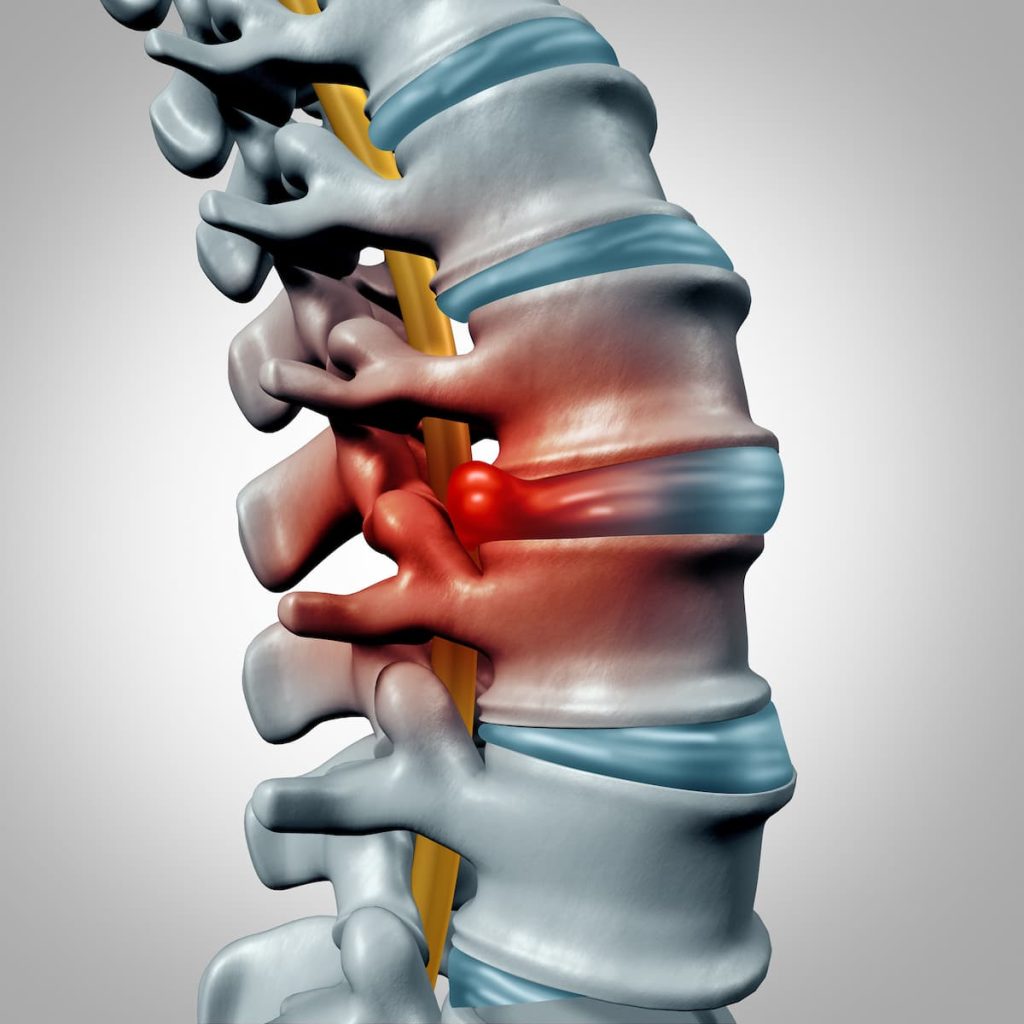The human spine contains vertebrae & discs acting as shock absorbers, but herniated and bulging discs can cause pain, weakness, and numbness for workers.
The human spine consists of small circular bones called vertebrae that support and protect the spinal cord, a bundle of nerve fibers that run from the brain through your back. A disc contains a tough elastic band and a soft gelatin-like center between every vertebra. This disc acts as a shock absorber and allows spinal column flexibility.
Get FREE Legal Advice
Call today to speak with an experienced Missouri workers compensation attorney!
Call (816) 399-3706Unfortunately, more than 1 million workers in the country suffer back or spinal injuries every year. Herniated and bulging discs are among the most common spinal injuries. However, most people use these terms interchangeably when they mean completely different injuries.
What Is a Herniated Disc?
A herniated disc occurs when a section of the disc gets pushed out of the annulus and into the spinal canal. This happens because of a rupture or laceration in the annulus from natural degeneration or work trauma from bending to lift heavy objects or awkward twisting. When this happens, the disc compresses the spinal nerves leading to severe pain.
Symptoms of a Herniated Disc
Workers with herniated discs typically show the following symptoms:
- Excessive Pain: Workers with herniated discs will experience sharp pain in their lower back, thighs, and buttock. Some people also experience pain or numbness in their calves and part of the foot. This pain is progressive and only worsens over time.
- Tingling and Numbness: A herniated disc leads to numbness and tingling in the leg and other body parts. Although not painful, prolonged numbness and tingling can get annoying and compromise your quality of life.
- Weakness: The nerve compression by a herniated disc causes unexplained weakness in the affected muscles. Workers generally cannot do their usual activities like lifting loads, walking long distances, and climbing stairs.
What is a Bulging Disc?
A bulging disc occurs due to the degeneration of intervertebral discs that makes them dehydrate. This dehydration stiffens the cartilage and bulges outward, hence the name “bulging disc.” It’s worth noting that the entire disc doesn’t bulge; only the outward part does.
Symptoms of a Bulging Disc
As mentioned above, bulging discs result from the natural deterioration of the disc cartilage. Common symptoms of a bulging disk include:
- Pain: A bulging disk causes pain in the hands, arms, neck, and shoulders. However, depending on the disc, some people experience no pain with their bulging disc.
- Difficult Walking: A bulging disc causes walking impairment and difficulty lifting or moving heavy objects. Workers with bulging discs can’t take part in usual work activities.
- Tingling: Workers with a bulge in their cervical region usually experience tingling in their hands, fingers, and arms. This tingling is because of the irritation of nerve roots in the spine.
Get Compensation for Your Bulging or Herniated Disc
Speaking with a lawyer is crucial when it comes to worker’s compensation claims involving herniated or bulging discs. In general, these injuries are covered by worker’s comp as long as there is evidence that they were caused by work-related activities. If you have suffered from herniated or bulging discs while on the job, you are generally entitled to receive a worker’s compensation settlement to cover your medical expenses and lost wages. The Law Office of James M. Hoffman is a trusted choice for obtaining fair compensation in these types of cases. Give us a call today for a free case evaluation.
Get FREE Legal Advice
Call today to speak with an experienced Missouri workers compensation attorney!
Call (816) 399-3706
